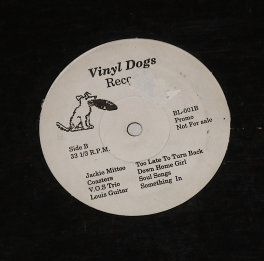Plugging Leaks to Save Sinking Sales
By Julene McCoy in Arts & Entertainment on Jul 17, 2007 6:05PM
Everyone is to blame for album sales being down except the actual industry itself. Who gets the spotlight for bringing down the sales this time? It’s the media and those promo copies they receive in order to review albums before they hit the street.
 Everyone remembers the Jack White/Q101 fiasco a few weeks back after Electra played Icky Thump in its entirety and then (surprise!) the album showed up on file sharing sites three weeks before the official release date. In this article, Emmis Communications Regional Vice President and General Manager states that the copy was given to them by someone "associated" with the record (duh!) and that they were told by the label when they asked to play the album in its entirety that they would probably not receive a cease and desist order.
Everyone remembers the Jack White/Q101 fiasco a few weeks back after Electra played Icky Thump in its entirety and then (surprise!) the album showed up on file sharing sites three weeks before the official release date. In this article, Emmis Communications Regional Vice President and General Manager states that the copy was given to them by someone "associated" with the record (duh!) and that they were told by the label when they asked to play the album in its entirety that they would probably not receive a cease and desist order.
Record companies are stating that these kinds of leaks lower sales by about half and have set their latest “shame on you” piracy messages to the very people given the job of promoting record sales. Whether it’s selling an actual promo copy on eBay, playing an album before the release date, or posting it to a file sharing site, apparently reviewers and promoters don’t care if the artists they rely on to make a buck actually get to make any money for their art.
The rampant leaking of material has both major labels and local labels, such as Bloodshot Records, limiting the number of tracks out for review or putting digital watermarks on the promotional copies so the person who leaks the content can be held responsible and/or taken off lists for receiving music pre-release date. We certainly believe that there are reviewers out there who sell their promo CDs for some cash, or post a great new song on their blog without believing they are putting an artist at risk of losing any royalties, but there are a lot of other places that receive advanced copies, as well. (When we worked at Best Buy in college, the store always had advanced copies of upcoming releases. That’s around 740 copies in circulation for them alone.)
We understand that piracy is a serious issue for the recording industry, but time and again it seems like they’d rather focus on a small segment of the people who may be illegally sharing music rather than address the flaws in their own business plan contributing to lower album sales. The digital encryptions will help labels police the bad guys more efficiently, which we agree with and, honestly, reviewers and other media outlets, why would you bite the hand that feeds you?
Promo record image via FMG Vinyl.